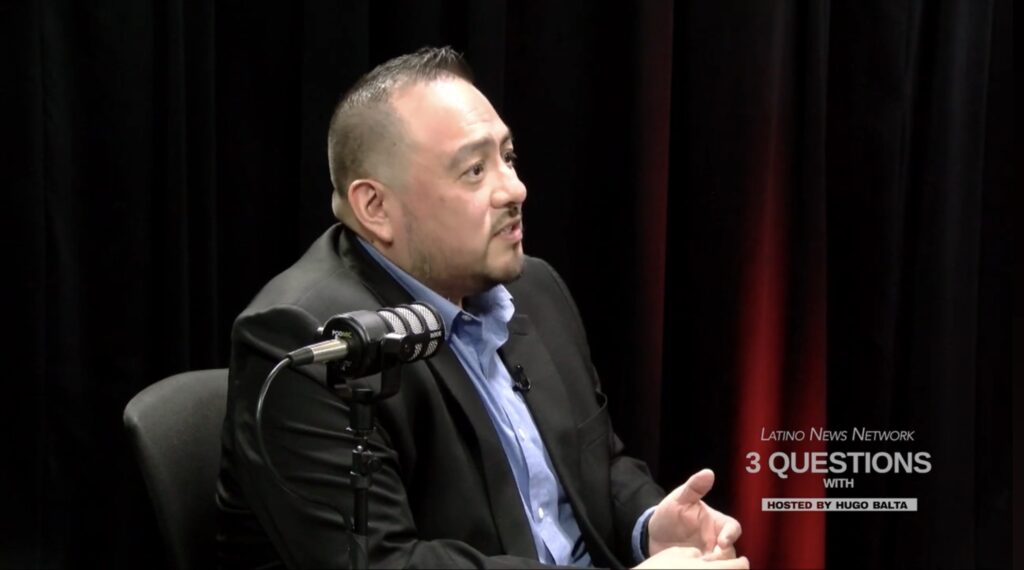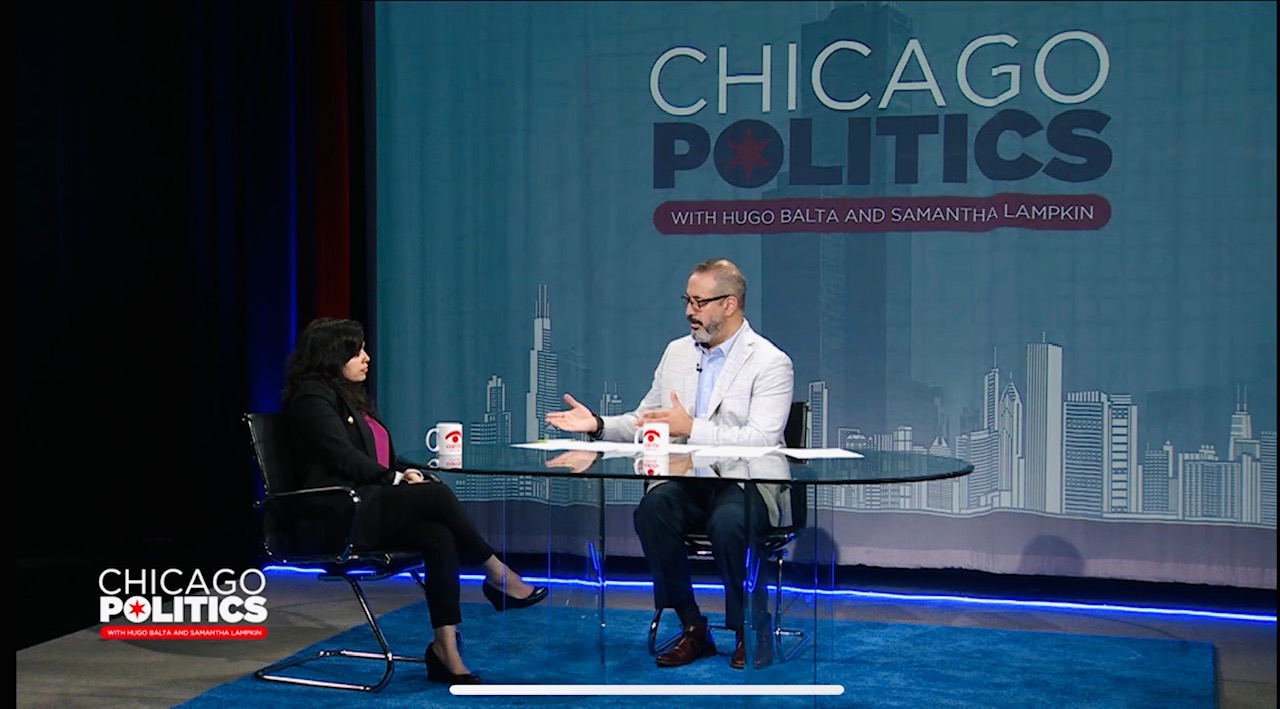Supporters and opponents of Bring Chicago Home, the high-end real estate transfer tax hike, are still processing what happened in the March primary and how to proceed.
The proposal aimed to generate $100 million a year for homeless services. The defeat was a major blow to advocates, including Mayor Brandon Johnson, who campaigned for the measure.
In the series premiere of Chicago Politics, Chicago Mayor Brandon Johnson’s Chief Of Staff, Cristina Pacione-Zayas, was Front and Center to discuss what went wrong and what comes next.
“It was a pretty complicated campaign,” said Chief Pacione-Zayas. “We had a lot opposition. There was a lot of confusion. (The) opposition took advantage of that.” Pacione-Zayas explained that part of the confusion was a last minute move to get the referendum off the ballot.
During Mayor Lori Lightfoot’s time in office, the contentious legislation was put on hold, but it was later reintroduced and adjusted under Johnson’s administration. In November, the City Council voted 32-17 to include the Bring Chicago Home referendum in the primary. A coalition of downtown real estate groups successfully sued to have the referendum removed from the ballot. However, an appellate court reversed this ruling, allowing the votes on the referendum to be counted.
As a response to homelessness, the city of Los Angeles passed the “mansion tax,” or Measure ULA, in 2022, similar to the Bring Chicago Home referendum, increasing transfer taxes for properties sold for more than $5 million. It has been reported that the “high-end real estate market went off a cliff,” partly because nobody was selling.
Here are some more insights: supporters of Measure ULA predicted $900 million in new revenue each year. But one year after it took effect, that figure was in the mayor’s budget for $150 million. If that response didn’t work in a comparable city like L.A., why does the Johnson administration think it would work here in Chicago?
“I think you have to look at the way that was structured. (It’s) very different. The transfer tax in California. There’s one in L.A., San Francisco, New York. All of those are around the range of 5.5% to 6%. We wanted a transfer tax of 3%,” Chief Pacione-Zayas explained in how Bring Chicago Home was different.
The city of Chicago has a housing-first approach. City data shows from 2020-2022, Chicago found housing for close to 1,900 households experiencing homelessness. Mayor Johnson has said that’s not good enough.
H-F is an evidence-based approach to ending homelessness that provides people with immediate access to housing and support services without preconditions. The belief is that people need to have their basic needs met before addressing other issues like employment or substance abuse.
Houston revamped its entire system to get more people into housing quickly, and it cut homelessness by more than half. However, San Diego attempted a series of one-off projects but saw far fewer reductions in homelessness.
What are the limitations keeping this response from being a success in Chicago? “If you want to solve for homelessness, you have to pay for it, Chief Pacione-Zayas said.
Mayor Brandon Johnson’s issuance of a $1.25 billion bond would revolutionize the City of Chicago’s strategy for fair neighborhood development and remove the obstacles faced by past administrations in terms of public finance. Johnson plans to pay for the massive borrowing package by letting dozens of the city’s tax increment financing (TIF) districts expire.
“TIF is not and has not been historically the most equitable tool,” Ciere Boatright, Johnson’s planning and development commissioner, said in an interview with WBEZ. “Bringing in economic development bonds will help attract investment — private investment, philanthropic investment and otherwise — to those neighborhoods that deserve quality development that haven’t seen it historically.”
“These bond proceeds will provide the City with much-needed resources to invest in our neighborhoods,” said Mayor Johnson when the announcement was made. “This new direction will allow for greater flexibility than the City’s Tax Increment Financing program and provide critical assistance for new businesses, restaurants, affordable homes, and cultural facilities where they’re needed most — not just where there’s a healthy TIF district.”
For years, Chicago’s TIF program districts have provided funding for development, but critics argue that the system is unfair and tends to benefit wealthier neighborhoods with appreciating property values.
When a TIF district is established, property tax revenues for schools, parks, and other public services are frozen at a certain level for the duration of the TIF’s existence. As property values rise, the extra tax revenue generated within the district is allocated to a special fund intended for infrastructure and economic projects within the TIF’s boundaries.
According to the Johnson administration, the Department of Housing (DOH) would use $625 million of bond proceeds to provide approximately:
- $360-390 million for the construction and preservation of affordable rental homes
- $210-240 million for the construction and preservation of homeownership or affordable owner-occupied housing
- $20-30 million for the preservation of single-room occupancy structures
The Department of Planning and Development (DPD) would use $625 million of bond proceeds to provide approximately:
- $400-500 million for neighborhood development grants
- $80-115 million for small business support
- $55-90 million for jobs and wealth building, including workforce training and missing middle housing infill development
In the first edition of the segment Voices, Jose Muñoz, Executive Director of La Casa Norte, who has experienced homelessness himself, had the last word on creating a revenue stream to help the unhoused.
SUGGESTION: Jose Muñoz: Living Invisibly

